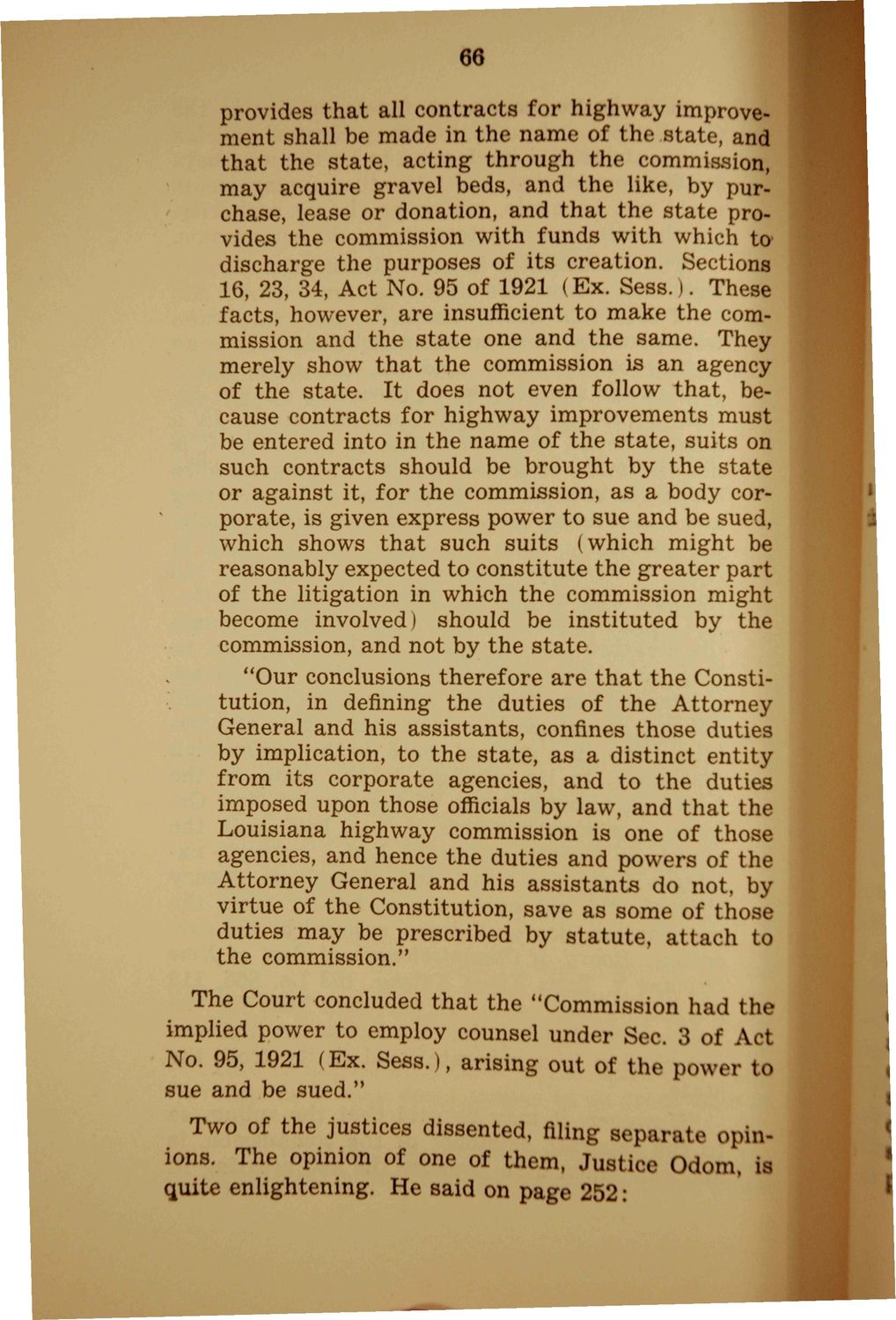| |
| |
Caption: Booklet - UI Charter of Freedom (1942)
This is a reduced-resolution page image for fast online browsing.

EXTRACTED TEXT FROM PAGE:
66 provides that all contracts for highway improvement shall be made in the name of the state, and that the state, acting through the commission, may acquire gravel beds, and the like, by purchase, lease or donation, and that the state provides the commission with funds with which to discharge the purposes of its creation. Sections 16, 23, 34, Act No. 95 of 1921 (Ex. Sess. I. These facts, however, are insufficient to make the commission and the state one and the same. They merely show that the commission is an agency of the state. It does not even follow that, because contracts for highway improvements must be entered into in the name of the state, suits on such contracts should be brought by the state or against it, for the commission, as a body corporate, is given express power to sue and be sued, which shows that such suits (which might be reasonably expected to constitute the greater part of the litigation in which the commission might become involved) should be instituted by the commission, and not by the state. "Our conclusions therefore are that the Constitution, in defining the duties of the Attorney General and his assistants, confines those duties by implication, to the state, as a distinct entity from its corporate agencies, and to the duties imposed upon those officials by law, and that the Louisiana highway commission is one of those agencies, and hence the duties and powers of the Attorney General and his assistants do not, by virtue of the Constitution, save as some of those duties may be prescribed by statute, attach to the commission." The Court concluded that the "Commission had the em No (Ex. Sess.), arising out of the power to 3 M sue and be sued. Two of the justices dissented, filing separate opinions. The opinion of one of them, Justice Odom. is quite enlightening. He said on page 252:
| |